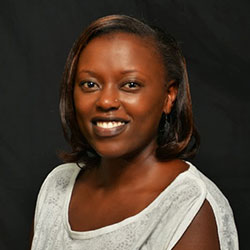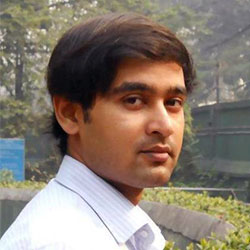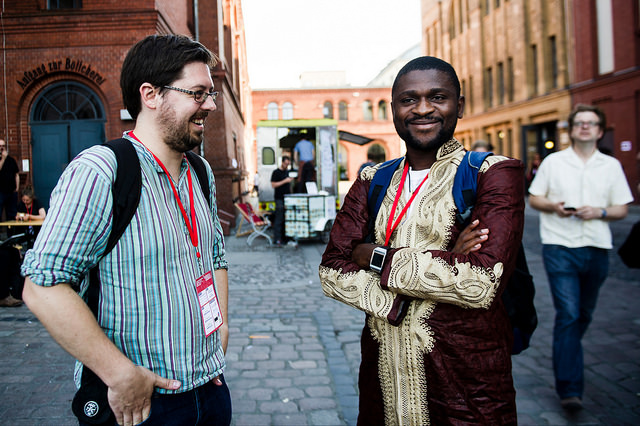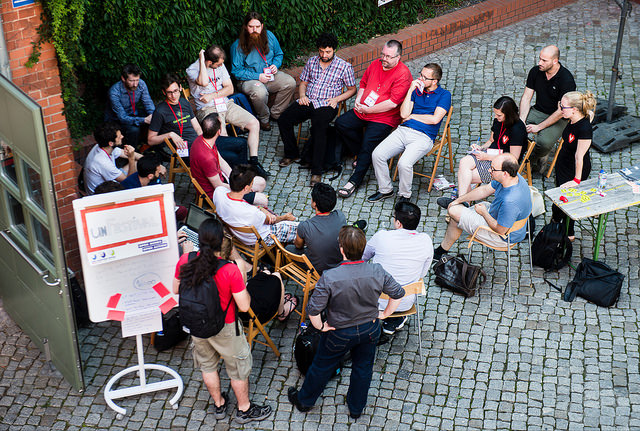What You Did
Growing the Global Open Knowledge Movement
We spoke with Anne from Kenya and Subhajit from India who were able to attend OKFestival thanks to the Financial Aid programme. Here is what they said about their take aways from the festival.


Anne Muigai is the Knowledge Lead at Open Institute, a think-do tank that brings together domain experts to provide technical and advisory services in the open data and open governance space. Subhajit Ganguly is Executive Director of Lawrence Anthony Earth Organization, works for restoring the balance in the natural environment and is the Ambassador for Open Knowledge India. From them, we learn how a financial aid programme can make a difference from a participant’s perspective and how OKFestival helped them in the positive change they aim to foster in their regions.
Bringing together the global open knowledge movement has its challenges as we are, by definition, spread across the world. Nevertheless, we have always made it a priority to provide financial aid to participants with valuable insights to contribute who would not otherwise be able to join us. This year, thanks to the generous support of our sponsors, we were able to help 70 community members join us in Berlin.
While the the challenges we face in holding our governments to account or convincing cultural institutions to open up their data are often particular to the local context, there remains an incredible amount of value in learning from those working to solve similar problems in different locations. Learning across knowledge silos and geographical divides was one of the main objectives of this year’s festival and the primary reason for placing such a high priority on financial aid! We caught up with two financial aid recipients to learn more about their motivations for participating.

OKFestival Participants, Photo by Gregor Fischer.
Anne Muigai is the Knowledge Lead at Open Institute, a think-do tank based in Kenya that brings together domain experts to provide technical and advisory services in the open data and open governance space. Subhajit Ganguly is the Open Knowledge ambassador for India who, with others in the open community, is working tirelessly to ensure that open knowledge programmes are part of India’s development agenda. Both are active participants in the open knowledge movement who joined us at OKFestival this year to share their experience of pursuing the open agenda in Kenya and India respectively. They also wanted to learn from colleagues from across the world, foster new collaborations, strengthen partnerships and finally connect twitter handles and email addresses to the faces behind them! Here are just a few of the exciting stories they reported back to us:
At the Open Government Data Updates from Around the World session, Anne met Steven De Costa, the Executive Director of the Australian digital agency LinkDigital where they struck up a conversation about platforms to handle open data, a topic that Anne is very focused on at the moment. Open Institute works with grassroots organisations across the country to embrace and unlock the value of data and learn how to curate, analyse, use and visualise data. The Knowledge Unit of Open Institute focuses specifically on supporting local and regional groups, by not only offering them workshops and tools but also tailored mentorship to guide them on how to roll out actions from their learnings and turning theory into practice. Along comes Steven, who, together with Anne, is already working on building the platform to match the needs of the Open Institute and the grassroots organisations they serve. They hope to have a first version of it ready by October 2014 – only three months after the close of OKFestival!
Subhajit Ganguly, who is working with others to grow the Open Knowledge local group in India, remarked that discussions with other regional ambassadors from Hawaii, Nepal, Japan, Philippines and China resulted in the discovery that they are facing are very similar problems to the ones he has faced in India - such as non machine readable data – and that there was an opportunity to pool resources to create projects and platforms they all could use!

Outdoor Unfestival , Pic by Gregor Fischer.
Like Subhajit, Anne had the opportunity to learn a number of valuable things at OKFestival and even adapted workshops she led on returning to Nairobi as a result. During the How to Teach Open Data session at the festival, facilitators discussed alternative methods of data storytelling for offline or low tech communities. This was opportune, as Anne and her team were set to be leading a number of workshops with grassroots organisations on using SDI data and they knew that they wanted to improve their approach in finding alternative ways to make use of their data in an engaging but not overly technical way. The OKFestival session facilitators led participants in an exercise in which they were asked to explore their data - to determine what type of data they had, what stories it could be used to tell etc.
More than anything, the session validated the approach that we were already planning to take for our workshops. As it's mentioned above, the aim of the workshops were to allow participants to think differently about data - technicalities aside, and bringing open data offline. Participating in the OKFest session was fantastic, as (even in the short time allotted to it) I got a chance to see how others reacted to the data we were given and collectively joined my group in having the 'aha' when deconstructing the data. [It was also a bonus for me as I became the student and not the teacher for a change] When we got back to Kenya, we took a leaf from the facilitators' exercise and took it for a test run, and adopted the resources during the OKFest session for one of our workshops. Indeed, the session went smoothly, as participants gave us (and themselves) insights into their own data and pushed them to think differently about data. Particularly in how they interpret it, share it, and in how they collect data as well.
OKFestival was immeasurably stronger as a result of the participation of all 70 of our financial aid recipients. As the open knowledge movement grows and diversifies and it becomes more and more difficult to bring everyone together, so it has become essential that we stay committed to ensuring that this diversity is reflected at our gathering.